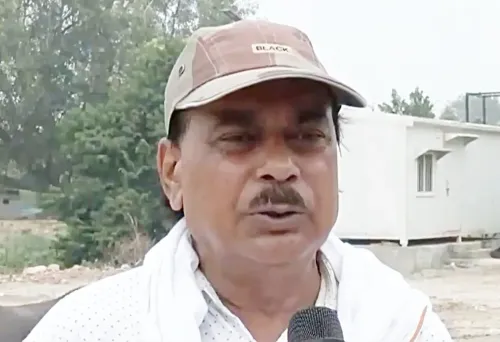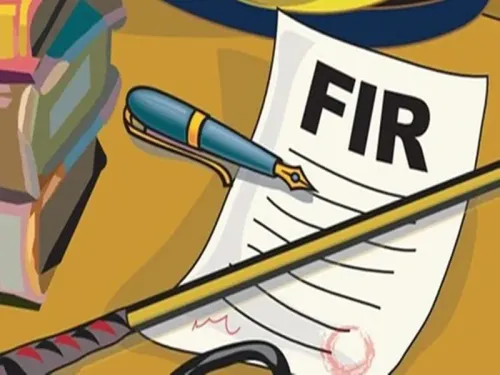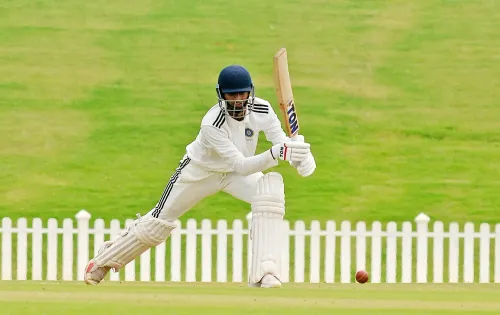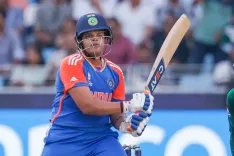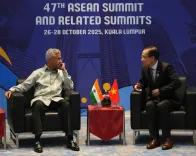Are Deep-Sea Fishing Vessels Set to Transform India's Fisheries Wealth?
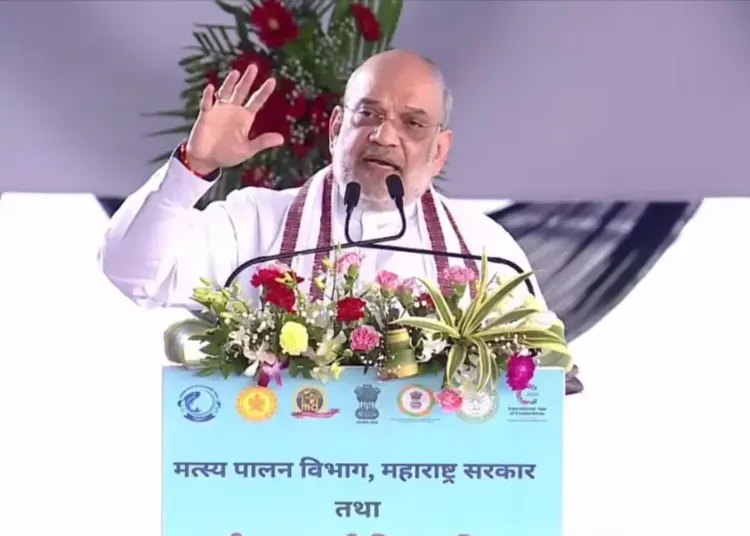
Synopsis
Key Takeaways
- Deep-sea fishing vessels will be distributed to empower fishermen.
- The initiative aims to boost India's fisheries wealth.
- Cooperatives will play a crucial role in managing these vessels.
- Sustainable practices are vital for long-term viability.
- India aims to be a leading global fish producer by 2030.
Mumbai, Oct 27 (NationPress) Union Home and Cooperation Minister Amit Shah emphasized India's dedication to self-sufficiency, sustainability, and the empowerment of cooperatives within the fisheries sector, while underscoring the importance of distributing deep-sea fishing vessels.
“This initiative aims to fully leverage the potential of India's fisheries wealth in the upcoming years. The advantages generated by the fisheries sector should directly benefit the hardworking fishermen and impoverished families linked to cooperative societies — this is the primary objective of this program. Over the next five years, we will establish a system that will support fishermen similarly to dairy, sugar mills, and market committees, paving the way for their economic success,” he stated.
The Home Minister made these remarks during the distribution of deep-sea fishing vessels under the Pradhan Mantri Matsya Sampada Yojna at Mazagon Dock, in the presence of Maharashtra Chief Minister Devendra Fadnavis, Deputy CMs Eknath Shinde and Ajit Pawar, and Ports and Fisheries Minister Nitesh Rane, among other notable figures. He remarked, “This scheme is set to profoundly impact the lives of individuals engaged in fisheries, who rely on their livelihoods along our extensive 11,099-kilometre coastline. In the near future, it will emerge as a crucial initiative.”
“This is not merely a distribution of vessels; it represents the distribution of dignity, prosperity, and self-reliance for our fishermen. For the first time in India, deep-sea fishing vessels will be owned and operated by fishermen cooperatives rather than private enterprises. Cooperatives are the essence of Aatmanirbhar Bharat in the fisheries domain,” Minister Shah asserted.
He further mentioned that in the coming five years, approximately 200 trawler fishing boats will be constructed for those involved in fishing, which will be managed through cooperatives.
HM Shah continued, “Whether it pertains to milk production, market dynamics, or fisheries, the profits belong to the diligent individuals, the impoverished people in rural areas, and only when these individuals achieve economic prosperity does our nation truly thrive. This principle is the foundation of cooperation.”
The Minister underlined how these vessels will empower fishermen like never before, transitioning from conventional near-shore fishing to deep-sea operations, potentially increasing incomes by three to four times through access to premium catches. He emphasized that cooperatives are essential to this empowerment, transforming small fishing groups into sustainable businesses. He reaffirmed the commitment to responsible resource management to safeguard marine ecosystems, aligning with India’s blue economy objectives.
He pointed out that sustainable practices will ensure long-term viability, prevent overfishing, and enhance exports. He urged other states to emulate Maharashtra's model, promising central support for infrastructure such as cold chains and ports. He stated that by 2030, India will become a leading global fish producer, contributing to the vision of Viksit Bharat.
According to a government release, deep-sea fishing vessels are being allocated to beneficiaries at a unit cost of Rs 1.2 crore, with financial backing from the Government of Maharashtra, the National Cooperative Development Corporation (NCDC), and the Department of Fisheries, Government of India. This initiative marks a significant advancement in modernizing India’s marine fisheries sector, enhancing deep-sea fishing capabilities, and advocating cooperative-led growth in coastal areas. It aims to explore fisheries resources in the Indian Exclusive Economic Zone (EEZ) and the High Seas.
Historically, India’s marine fisheries sector has functioned on a limited scale, with fishermen depending on traditional vessels and methods, typically venturing only 40-60 nautical miles from the shore. This restricted operational range has limited catch volumes and economic returns. This initiative will empower fisheries cooperative societies and FFPOs to sustainably exploit the immense potential of India’s Exclusive Economic Zone (EEZ) and High Seas, especially in regions like Lakshadweep and Andaman & Nicobar Islands. It is anticipated to unlock new opportunities in high-value fisheries such as tuna, thereby boosting India’s seafood exports and enhancing coastal livelihoods, as stated in the government release.

